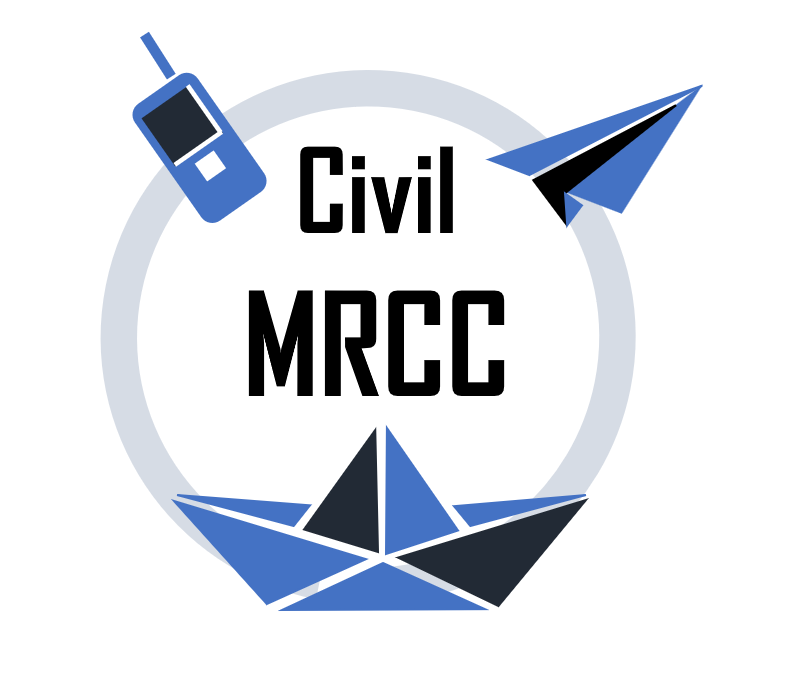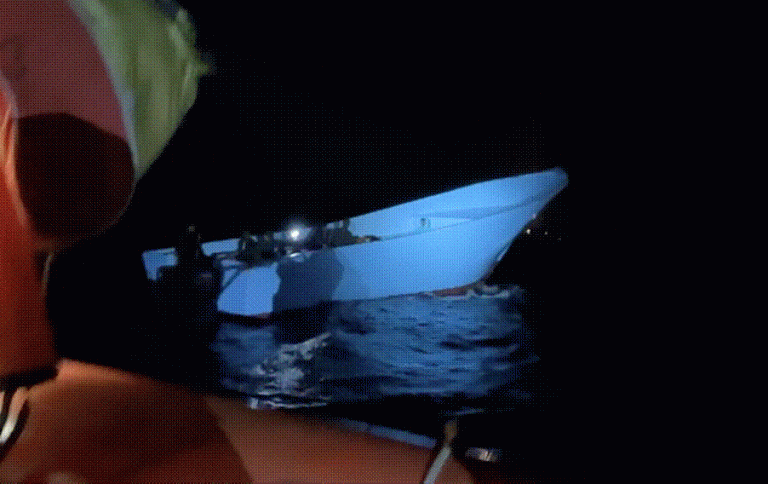April 2025
Feric lost his brother in the massacre of Tarajal 2014. Together with other family members he founded an association in Douala, Cameroon where many of the victims had been born. In a meeting at the 10th anniversary of the Alarm Phone last Autumn in Dakar, Senegal, he raised the question how to continue after 10 years of fighting for justice that has not come, while victims’ families get more and more exhausted. Because it gives him strength, the idea was simple: let them feel the network of solidarity more closely. Mohamed and Latifa from Tunisia and Aminata and Ndeye from Senegal, who all have experienced the loss of family members to the border regime, immediately expressed their willingness to join. Pascaline and Babacar, who have years of experience in the Alarm Phone offered to join, along with activists from Cameroon and Senegal living in Morocco who are often confronted with the question of disappearances.
As Feric explains:
“Given its geographical location, Cameroon, a country on the border between the countries of Central Africa and West Africa, constitutes a platform and a buffer territory for migrants from the region. Cameroon is also a country of departure for its young people, most of whom migrate because of the precariousness. As a result, although the figures are still poorly known and sometimes underestimated, Cameroon sees thousands of migrants pass through its territory every year, either in transit or leaving Cameroon with Europe as a common final destination. For a long time, Cameroonian authorities, in particular, and African authorities in general, marginalized the tragedies involving migrants, as they take place far from the national borders, in the Mediterranean Sea or the middle of the desert.
The key event that highlighted the situation in Cameroon through its level of media coverage, and which moved both national and international opinion, was the tragedy of the 6th of February 2014 off the coast of Tarajal, where dozens of young Cameroonians and other African nationals lost their lives trying to swim to the Spanish coast. This tragedy was all the more shocking because survivors testified that the Spanish Guardia Civil had used rubber bullets and tear gas on migrants who were swimming. The tragedy left several Cameroonian families in mourning, and they subsequently formed a legal association to demand justice, truth, and reparation for the death of their children. Since then, borders have continued to plunge families into mourning, and remain one of the scourges that most decimate Africa’s youth. The families of the victims are united in their daily demand for truth, justice, and reparation, and they continue and will continue to demonstrate tirelessly to obtain answers to their demands.”
The connections and the trust which has been growing in the more and more developed Commemoraction network made this journey possible. Already in April, they visited together the families of Tarajal’s victims, as well as many other families of the missing in Edea, not far from Douala in Cameroon.
Supported by the platform missingattheborders.org, they conducted many interviews and videos. In autumn Missing at the Borders will publish them in a designated section on the website for Cameroon, with the aim to give voice to the families and tell their stories. During the week they interviewed dozens of family members, they shared their feelings of loss, they held and empowered each other, and, at the end, commemorated together.
“Our visit to Cameroon has come to an end. It was interesting and intense despite the difficulties and the pain. Each family of the disappeared has a story that is difficult to get out of their mouths. […] Their stories, the loss of their children, and their miserable situation made us cry.”
Mohamed from Tunisia (his son disappeared in September 2012).
“The meeting allowed us to know that we are not alone in this situation. When you listen to their stories, you forget your story, and you open a path that allows the fight to continue.”
Aminata from Senegal (her son disappeared in 2020).
“From the moment we arrived, we felt like a family, surrounded by kindness, smiles and generosity. Every moment shared with the others was precious and will remain engraved in our memories.”
Ndeye from Senegal (her brother disappeared last year).
“The families of the missing who came from Senegal and Tunisia to support the families here in Cameroon did a colossal job of meeting, travelling, exchanging and interviewing. The families we have visited were desperate, because they had never known that there were people fighting to give them support and comfort. They feel responsible for the fact that their children or family members had died or disappeared on the migratory route. It is good for them to see other families from elsewhere organised and accompanied by a network fighting for freedom of movement. We, as a network, should and will accompany them in leading the fight for justice, organising other big events to get the families out of their isolation so that they can stand up in front of the public with dignity and reclaim their rights. Because migration is not a crime but a right and many families don’t know this. In this journey I have really found the reasons that push people to leave: poverty, precariousness and vulnerability. It’s caused by bad government policies and the complicity of the European Union, so it’s our duty as activists to fight and continue to fight for a world with equal rights. During the trip we saw the commitment and determination of the whole group to succeed. Let’s hope we can meet again in another country, in a different place, to continue the fight.”
Babacar (Alarm Phone member based in Laayoune).

CommemorAction with families of missing in Cameroon
Family Testimonies – https://missingattheborders.org/testimonials
Mali section of the website (new!) – https://missingattheborders.org/mali
AP CommemorAction Group



